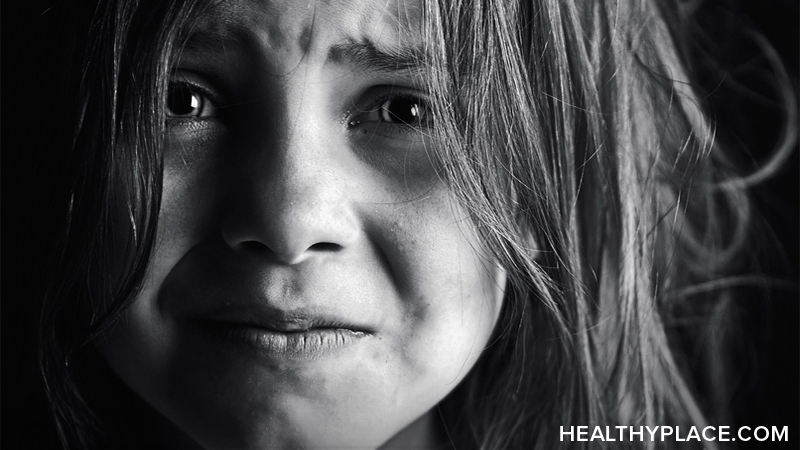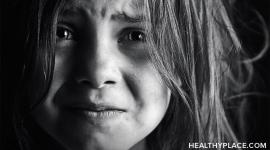What is Psychological Abuse of a Child?

Surprisingly, psychological or emotional abuse of a child can have more long-lasting negative psychiatric effects than either childhood physical abuse or childhood sexual abuse. Learn about the types and symptoms of psychological abuse.
Definition of Child Psychological Abuse
Psychological abuse of a child is a pattern of intentional verbal or behavioral actions or lack of actions that convey to a child the message that he or she is worthless, flawed, unloved, unwanted, endangered, or only of value to meet someone else's needs. Withholding emotional support, isolation, or terrorizing a child are forms of psychological abuse. Domestic violence that is witnessed by a child is also considered a form of psychological abuse.
Types of Child Psychological Abuse
Psychological abuse of a child is often divided into nine categories:
1. Rejection: to reject a child, to push him away, to make him feel that he is useless or worthless, to undermine the value of his ideas or feelings, to refuse to help him.
2. Scorn: to demean the child, to ridicule him, to humiliate him, to cause him to be ashamed, to criticize the child, to insult him.
3. Terrorism: to threaten a child or someone who is dear to him with physical violence, abandonment or death, to threaten to destroy the child's possessions, to place him in chaotic or dangerous situations, to define strict and unreasonable expectations and to threaten him with punishment if he does not comply.
4. Isolation: to physically or socially isolate a child, to limit his opportunities to socialize with others.
5. Corruption or exploitation: to tolerate or encourage inappropriate or deviant behavior, to expose the child to antisocial role-models, to consider the child as a servant, to encourage him or coerce him to participate in sexual activities.
6. The absence of emotional response: to show oneself as inattentive or indifferent towards the child, to ignore his emotional needs, to avoid visual contact, kisses or verbal communication with him, to never congratulate him.
Neglect: to ignore the health or educational needs of the child, to refuse or to neglect to apply the required treatment. (See: What is Child Neglect?)
7. Exposure to domestic violence: to expose a child to violent words and acts between his parents.
The behavior of an emotionally abusive parent or caregiver does not support a child's healthy development and well-being-instead, it creates an environment of fear, hostility, or anxiety. A child is sensitive to the feeling, opinions, and actions of his or her parents.
8. Showing a lack of regard for the child
This behavior often includes rejecting the child by:
- Not showing affection.
- Ignoring the child's presence and obvious needs.
- Ignoring the child when he or she is in need of comfort.
- Not calling the child by his or her name.
9. Saying unkind things to the child
Emotionally abusive parents say things or convey feelings that can hurt a child deeply. Common examples include:
- Making the child feel unwanted, perhaps by stating or implying that life would be easier without the child. For example, a parent may tell a child, "I wish you were never born."
- Ridiculing or belittling the child, such as saying, "You are stupid."
- Threatening the child with harsh punishment or even death.
- Continuous verbal abuse.
Symptoms of Child Psychological Abuse
Symptoms of psychological abuse of a child may include:
- Difficulties in school
- Eating disorders, resulting in weight loss or poor weight gain
- Emotional issues such as low self-esteem, depression, and anxiety
- Rebellious behavior
- Sleep disorders
- Vague physical complaints
APA Reference
Gluck, S.
(2021, December 17). What is Psychological Abuse of a Child?, HealthyPlace. Retrieved
on 2026, January 31 from https://www.healthyplace.com/abuse/child-psychological-abuse/what-is-psychological-abuse-of-a-child


